
2022, like 2020 and 2021, “tested us in ways that few could have previously imagined,” says François Ortalo-Magné, dean of London Business School. But from the ongoing coronavirus pandemic and global cost of living crisis — as well as 2022’s biggest new crisis, the war in Ukraine — have emerged “critical conversations around climate change, sustainability, and social equality.
“None of these issues is easy to address,” Ortalo-Magné says in offering his 2023 New Year’s resolution, one of 12 business school deans in the United States and Europe to contribute this year to Poets&Quants‘ annual feature (see deans’ resolutions for 2021 and 2022).
“So little is under the direct control of business schools,” Ortalo-Magné continues, “but our alumni and corporate partners are well-positioned to drive change. At London Business School, we are resolute in our commitment to giving them greater access to research insights and learning opportunities.”
2023: THE FIRST FULL YEAR OF LBS’ ‘FOREVER FORWARD’ CAMPAIGN
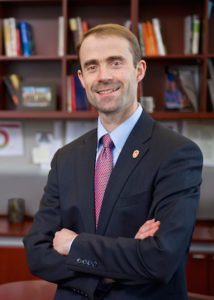
London Business School Dean François Ortalo-Magné: “Our impact is amplified when our alumni and corporate partners are supported with the content and connections they need for today and tomorrow”
Ortalo-Magné welcomes the impact that LBS’ partners, alumni, and students can have in 2023 “when supported with the content and connections they need for today and tomorrow.” Which is why the school launched its Forever Forward Campaign in 2022: “to better serve our alumni and corporate partners, and to amplify their impact,” he adds.
“The five-year campaign seeks to double the number of scholarships we offer to attract the brightest minds and enrich our diversity, invest in research to power individuals and organizations, develop the school’s learning environment, and unleash innovation.
“We will promote connections, collaborations and ambitious thinking around the globe. As dean of London Business School, I resolve to serve our community and amplify everyone’s impact.”
FOSTER’S HODGE: STRIVING TO LIVE UP TO SCHOOL’S PURPOSE
On the other side of the globe from London, Frank Hodge, dean of the Foster School of Business at the University of Washington in Seattle, echoes some of Ortalo-Magné’s sentiments: 2023, Hodge says, will be about living up to the Foster School’s “North Star” — “Better Humanity Through Business.”
“As we strive to live this purpose, two themes will continue to dominate our conversations in the coming year,” Hodge says. “The first is the heightened urgency and increased impact of business leaders addressing environmental and societal issues. For example, today’s leaders absolutely must possess the skills and attitudes necessarily to deeply embed climate change and societal inequities (e.g., homelessness, educational inequalities) into their decision-making frameworks. It is no longer adequate to assess the impact of a decision on a business. We must assess its impact on our communities and humanity as a whole.
“The second theme is flexibility in how we work, learn, and interact with others. We, and almost every organization including corporations, are still struggling with balancing in-person experiences with remote or hybrid experiences. Continuing to have a growth mindset and explore how challenges can become opportunities in this space is critical to defining the workspaces and cultures of the future.”
TEPPER DEAN BAJEUX-BESNAINOU: BUILDING ‘THE INTELLIGENT FUTURE’
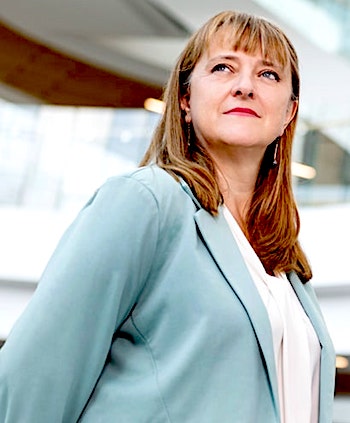
Isabelle Bajeux-Besnainou of Carnegie Mellon’s Tepper School of Business: In 2023, “we will leverage our greatest asset, human ingenuity”
Isabelle Bajeux-Besnainou, dean and Richard P. Simmons professor of finance at Carnegie Mellon University’s Tepper School of Business, used the new year as an opportunity to promote The Intelligent Future, a key element in her school’s 2023 strategic plan.
“My New Year’s resolution is to continue to develop the building blocks of The Intelligent Future,” she says. “Here at the Tepper School, our innovative approach to business is data-informed and human-driven. In the new year, we will dive into cutting-edge research. We will explore how artificial intelligence and digital transformation can best inform our work.
“Most importantly, we will leverage our greatest asset, human ingenuity, as a Tepper School education recognizes that the human touch is an essential tool for effective business leadership. Being human means understanding the importance and impact of building a sustainable and inclusive world.
Innovation is central to Jennifer Conrad’s resolution, too. The interim dean and Dalton McMichael distinguished professor of finance at the University of North Carolina’s Kenan-Flagler Business School says while she has “never been good at New Year’s resolutions,” as the spring semester begins, “I will double down on my ‘academic year’ resolution: to advance the innovations and significant activities that are underway across UNC Kenan-Flagler and work to maintain the considerable momentum that we have achieved together across the school. We will hand the new dean an excellent institution and some thoughtful recommendations for the future.”
AT CAMBRIDGE, NO LOOKING BACK
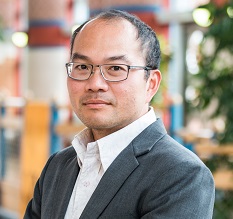
Cambridge’s Conrad Chua: “It would be a mistake for business schools in 2023 to simply rewind the clock to 2019”
Back in the UK, Conrad Chua, executive director of the MBA program at Cambridge University’s Judge Business School, says the school’s leadership is resolved “not to wind the clocks back to pre-pandemic days.”
“This past year will go down as the year most of the business school world thankfully moved away from that pandemic footing that hung over us,” Chua says. “For schools like Cambridge Judge Business School, as we enter 2023 the buzz is back in the buildings as we see students on campus.
“However, it would be a mistake for business schools in 2023 to simply rewind the clock to 2019 — and we resolve not to do so. The past few years have taught us valuable lessons about technology, teaching delivery and our community. While the return of in-person teaching is very welcome, business schools are going to use the next year to find their sweet spot in blending in-person with online teaching.
“One area where there will be a lot of experimentation will be in how business schools connect with their alumni. Our relationship with alums is going to be much deeper as these graduates of our programs look to schools for continued learning — so we plan to be inventive in devising such continued learning, while taking on board feedback from alumni as we continually refine our offerings.
“At Cambridge Judge Business School, we are using a range of in-person and online outreach to cater to our diverse alumni. Our Dean and faculty are hosting in-person master sessions with alumni in key cities around the world. We are also generating online content across text, pre-recorded video and livestreams to create an online learning community across alumni and students. An inaugural online learning festival for our Cambridge community will be held in summer 2023. The community will learn a lot from each other and the School will learn about how our community wants to learn.
“I am excited to see how our community responds and what other schools learn from their efforts to strengthen their alumni communities. That’s part of continued learning for business schools so they can better help their alumni with continued learning.”
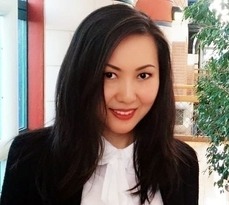
Dr. Jenny Chu of the Wo+Men’s Leadership Centre at Cambridge Judge Business School
In another resolution from Cambridge Judge, co-Academic Directors Jenny Chu and Feryal Erhun and Executive Director Tracey Horn of the B-school’s Wo+Men’s Leadership Centre offer their hopes for “a deeper grasp of the challenges and opportunities of gender diversity,” while expressing concern that “the pandemic and economic downturn have disproportionately affected working women, and many gains in organizational gender equity achieved in recent years are in danger of being diminished.
“Therefore, in 2023 we will recommit to helping women realize and embrace their potential to become successful leaders in all sectors, irrespective of how well women have previously been represented,” they write.
“As we usher in 2023, our resolution is to generate a deeper grasp of the challenges and opportunities of gender diversity through academic research and by engaging across generations — from high school students to board chairs. So that gender issues are not only understood but actively engaged with in our hearts and minds. So that we move beyond tick-box exercises, and real progress is made.
“We will seek to break all bias, expand the pool of women with the requisite leadership skills, and enable all to realise their potential in a world that deserves the rewards that true diversity can bring. In 2023, the Wo+Men’s Leadership Centre will continue our focus on gender equity, with our annual conference dedicated to embracing equity and creating space for all to grow together. This includes mentorship and allyship for women in business to enable voices to be heard above the noise and to develop authentic leadership styles and a deep-seated sense of belonging.
“And we resolve to improve transparency in equality, diversity, and inclusion (EDI) policies. By highlighting best practices in EDI, we aim to help businesses and organisations understand their strengths and weaknesses in these crucial issues, implement better practices, and shed poor ones.
“So, the Wo+Men’s Leadership Centre is looking forward to 2023 and actively taking on these challenges. We all have a lot to do!”
2023: ‘A TREMENDOUS OPPORTUNITY’ TO MAKE POSITIVE CHANGE
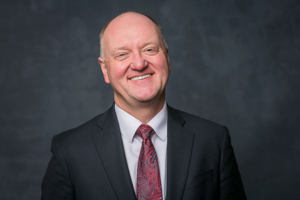
Cornell’s Andrew Karolyi: Johnson School will strengthen its commitment to Responsible Research for Business and Management and the United Nations Principles for Responsible Management Education
Dean Andrew Karolyi of Cornell University’s SC Johnson College of Business resolves to “continue to develop responsible, principled leaders equipped to effect change essential to achieving sustainable, shared prosperity.” In pursuit of this goal, he says, the school will continue to focus on “inspiring and encouraging the development of high-impact, industry-relevant research and teaching by our faculty across all business and management disciplines.
“As a result of our college’s shared principles with organizations like Responsible Research for Business and Management (RRBM) and the United Nations Principles for Responsible Management Education (PRME), their mission and values will provide a well-developed framework. The guiding principles of these organizations focus on a commitment to the core concept of corporate sustainability in our curricula, the importance of driving management research to align with the United Nation’s 17 Sustainable Development Goals (SDGs) and all in a way that is highly attuned to the needs of companies worldwide today.
“My resolution is to not only push our own college to strengthen our alignment with PRME and RRBM’s core principles, but also to exhort other business school leaders to do the same in their own colleges and schools. The time is now, the need is acute, and we in the world of business education and research have a tremendous opportunity to make this kind of positive change.
“As part of our commitment to responsible research we must create as many pathways as possible for our faculty to interact with business leaders, whether by teaching in executive education courses, engaging industry through campus research centers, spending time with alumni to learn about their businesses, or serving on corporate boards where they will learn firsthand about the challenges companies are facing. We want to encourage faculty to highlight the impact of their work in their annual reviews; design formal rewards that recognize faculty for impactful research; and amplify the results of research findings in print, on websites, and at school events.
“An example of our efforts is our annual Research with Impact Report. This compendium focuses on elevating our research strengths and amplifying them to the broader community. We can do much more.”
AT MICHIGAN, ‘BUILDING A BETTER WORLD THROUGH BUSINESS’
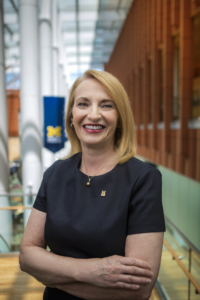
Michigan Ross Dean Sharon Matusik: School will “significantly ramp up fundraising” for scholarships
Sharon Matusik became dean of the University of Michigan Ross School of Business in August. This month she looked ahead to what will be her first full year in the top job at one of the top public business schools in the U.S.
“The beginning of a new year is a time for reflection and renewal,” Matusik says. “At Michigan Ross, we have big goals for 2023. We aim to continue to elevate our school’s mission of building a better world through business. This means increasing our focus on highly impactful research, teaching excellence and innovation, and collaborations. This will mean devoting more attention to working effectively across the University of Michigan campus and beyond to generate innovative solutions to challenges we all collectively face from climate change, to economic inclusion and technology disruption.
“Action-based learning has long been one of our cornerstones, and we see this approach as more important than ever in the face of economic, technical, social, and global uncertainty. We aim to emphasize these opportunities for our students to gain real-world experience making decisions under uncertainty, working effectively in teams, and managing ambiguity.
“Another way we aspire to lift up our students is by doing all that we can to financially support them. In 2023, we will significantly ramp up fundraising efforts to create additional scholarships that will expand access and opportunities for the best and brightest individuals from all backgrounds, regardless of their financial circumstances.
“Last, but definitely not least, we aim to continue to build on the great pride and sense of community among students at Ross and the University of Michigan that will remain with them throughout their careers. The ‘Go Blue’ culture at Michigan is legendary, and this pride and connection is more important than ever. In the wake of Covid-19 and the mental health crisis that is impacting so many across the globe, we aim to focus on further strengthening these ties. We will invest more time and energy on programs and initiatives that foster an inclusive community where all feel welcomed and empowered to be their best selves.”
AT EMORY, ‘LEADING THE AI REVOLUTION’
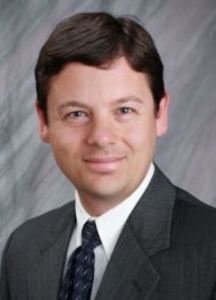
Emory Goizueta Dean Gareth James: B-school will be “a leader among institutions in integrating AI into business school education”
Gareth James became dean of the Goizueta Business School at Emory University in Atlanta in July. From the start the long-time USC Marshall School of Business professor made clear his ambitious plans for his new home — plans that will advance significantly in 2023.
“As we look back on the successes of 2022 and prepare for the new year, the faculty and staff at Goizueta — and across Emory — are focused on harnessing the power of artificial intelligence to advance human progress,” James says. “My resolution is to prepare our students for the AI and machine learning revolution, respond to industry needs in this space, and keep ethics and potential bias front and center in our discourse.
“Right now, companies and organizations are collecting more data than ever before. Organizations are also exploring automation on a new level from robotics used in manufacturing procedures to customer service chatbots and algorithms that recommend products to customers. They need skilled analysts to make sense of this data and develop informed recommendations — and managers with a strong foundation in this space that can work with these specialists in meaningful ways to drive impact.
“Like all things, the technological advancements of AI and machine learning don’t come without costs. One of the most prevalent is the presence of bias in AI, which makes its way into algorithms when the data used to create them, or the individuals coding them, are biased. For instance, if AI is used to inform jail sentencing or loan applications and the data used to build these algorithms includes human biases, there are serious implications, both on the individual and societal level.
“At Goizueta, we’re committed to diversifying who is in the room when building and using new technologies. And it’s not just a focus at Goizueta, but across Emory as a whole. Through our AI.Humanity initiative, Emory is placing AI and machine learning experts across campus, and facilitating the exchange of ideas relating to advanced technologies. The university is hiring 60-75 new faculty, joining a strong cadre of existing researchers working in computing, data, and the quantitative sciences.
“Our goal is to prepare both the data scientists of the future, as well as the business leaders that work with these specialized workers to use AI and machine learning in a way that benefits business and society … and I am proud to say that we’re well on our way.
“This year, we are launching our new MS in Business Analytics for Working Professionals, a 10-month, part-time program for those with 5 or more years of experience currently working in data, business analytics, and IT fields. We are also expanding our full-time MS in Business Analytics program to include an AI in Business track. Both MSBA programs incorporate AI and machine learning into the curriculum. For those individuals looking for these types of skills who do not need a master’s degree, we are continuing to run our popular AI and Machine Learning course through Emory Executive Education.
“Our faculty are already pushing the envelope in the AI and machine learning space and will be doubling down in 2023 with renewed resolve. Goizueta Professor Karl Kuhnert is leveraging AI to teach ethics. As one of the primary creators of BoXHED, Goizueta Professor Donald Lee is using AI & machine learning to extract predictive signals from high-frequency health data, such as those logged by wearable devices like an Apple Watch. The data can be distilled into a single number called the hazard rate, which can predict the probability of experiencing major health events, such as a stroke. Goizueta Professor David Schweidel is exploring AI and machine learning on the marketing front. He is researching topics like how to use natural language generation technology to bolster search engine optimization and the future role of technology in enabling firms to collect and interpret consumer signals throughout the customer journey. Starting this January, Goizueta’s newest professor Emma Zhang will continue her research on the development of statistical methods and theory for high-dimensional networks, graphs, tensors, and point processes, with applications in business, social sciences, biology, and medicine.
“We might think of AI and machine learning as futuristic tools, but they are not future technologies. They’re current technologies. In every industry and every facet of an organization, there are opportunities for finding value with AI and machine learning.
“It’s my resolution that Goizueta Business School is a leader among institutions in integrating AI into business school education — contributing to a broader knowledge base for industries and academics alike, solving issues related to ethics and bias, and equipping the leaders of tomorrow with new ways to leverage technology.”
2023 MARKS A CENTURY OF BUSINESS EDUCATION AT THE LEAVEY SCHOOL

Santa Clara Leavey Dean Ed Grier: 2023 is about “partnerships, leadership, unity, sustainability”
Ed Grier, dean of Santa Clara University’s Leavey School of Business, says 2023 will be about “partnerships, leadership, unity, sustainability” — and about contending with the disruptions and innovations that occurred in 2022, which “brought a new glimpse at business and leadership with huge company sales and acquisitions, mass layoffs, and a few historic ‘changing of the guards.’”
“In 2023, Santa Clara University’s Leavey School of Business aims to address these changes and how they will affect the upcoming generation of business leaders by stressing four main areas of focus: Partnership, Leadership, Unity, and Sustainability,” Grier says.
“Qualities that make up a great business leader are not the same as they were five or 10 years ago. Leaders today need to embrace responsible governance and corporate innovation from every level. In 2023, we are resolving to double down on our efforts to teach students how to be leaders who desire to benefit the greater good of their company, their employees, and the ever-changing societal challenges.
“Part of embracing the role of a caring and responsible leader is the need to understand and embrace the challenge of sustainability. Climate change is an ever-growing threat that businesses across industries must work together to overcome, and we expect our students to graduate into leaders who will motivate these changes.
“However, business schools cannot accomplish all this alone. In 2023, Leavey will continue to identify and foster key partnerships with local, national, and international organizations to understand the needs of the industry and prepare students for their post-business school careers. We resolve to work together with our partners to synthesize ideas, programs, and research to inspire our graduates with the Jesuit values of Santa Clara University and stand apart as business leaders.
“In 2023, Santa Clara University’s Leavey School of Business will be celebrating its centennial anniversary. I am privileged to be leading the school into its next century and am embracing this task with a full heart. We have created an initiative called Leavey PLUS that will incorporate all the school’s resolutions and will be launching in 2023. Stay tuned …”
AT GEORGETOWN, MOLDING BOLD & COMPASSIONATE LEADERS
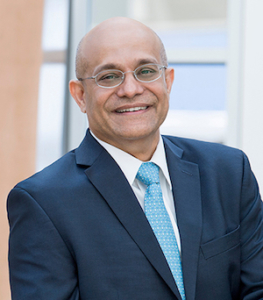
Georgetown McDonough’s Paul Almeida: “We embrace the world as our concern and we believe business innovation is an important part of the solution”
Paul Almeida, dean of another Jesuit institution, the McDonough School of Business at Georgetown University in Washington, D.C., says the array of complex yet interwoven global challenges requires leadership with intelligence and compassion. That, he adds, is Georgetown’s specialty.
“Across the globe, people are navigating disruptions that are changing the way we think and interact with business. The world’s challenges continue to grow more interconnected and complex — from climate change and sustainability to AI and technology to global health — and now more than ever, the world needs principled and caring leaders who are ready to reach across the aisle, ask important questions, and use business as a force for good. As a business school, I believe it is our collective responsibility to ensure the next generation of professionals have the tools, connections, and mindsets to address global challenges. If we can show our future leaders that business is a mechanism for good – that we can both do right by our communities AND support our bottom line – then we can envision a future where business is truly the greatest force for positive change in our world.
“This concept of serving the common good is rooted in our mission as a Jesuit institution. Since their early beginnings, Jesuits have been aware of their responsibility to address social realities across the world, to protect the most vulnerable, and to use their academic pursuits as a way to advance justice. Here at Georgetown, we embrace the world as our concern and we believe business innovation is an important part of the solution.
“It is my hope for the new year that we continue to think boldly about the capabilities of business and that we empower our students to do the same. This is not a new resolution, but it is a mission that we keep front and center every single year as we try to do best by our community – and the world. Our work as a business school never ends. It is a continuously evolving cycle of innovation as we evaluate global challenges and prepare our students to address them. My resolution is that we expand our global view, we keep asking questions, and we stay focused on the pursuit of a better future for all.”
AT IESE, ‘DOUBLING DOWN’ ON POSITIVE IMPACT
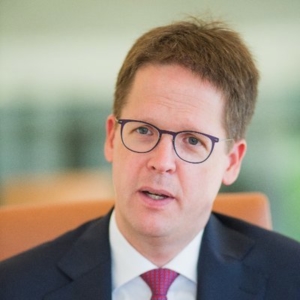
IESE Dean Franz Heukamp: “At IESE, we recognize that being a good leader means understanding that leadership is a position of service”
Franz Heukamp, dean of IESE Business School in Barcelona, Spain, echoes his counterparts around the world in expressing hope that the new year brings greater focus on principled business leadership — and he teases several new developments to the effect in the new year.
“My first and primary resolution for 2023 is to pay special attention to caring for the people around us,” Heukamp says. “At IESE, we recognize that being a good leader means understanding that leadership is a position of service. And to serve others means to take care of the people around you. At a practical level, that means first taking good care of the people who work at IESE — including looking at how we can improve internal processes and flexibility so that employees work in an agile and connected environment that fosters professional excellence and cooperation between teams. Having well-cared-for employees allows us to continue taking good care of everyone who forms part of or interacts with IESE’s community. Indeed, our students, alumni and clients tell us they appreciate the personal attention we give to everything we do at IESE.
“Whether that’s our faculty’s open door policy, our 4:1 student-to-faculty ratio, or our fantastic cafeteria staff, who get to know each student’s name and often their regular order. It’s about paying attention to the small, everyday things that can sometimes seem minor but contribute to the sense of community and belonging people experience when they step foot on our campuses. A renewed focus on helping others also gives a deeper meaning to our work, which is crucial in combatting feelings of burnout and disconnection.
“In line with this strategic focus on caring for others, we will also be doubling down on the importance of having a positive impact this year — whether through activities such as our sustainability leadership initiative, launching new programs, or giving more tools to help our students and alums. It is always inspiring to see the impact our students and alumni can have on the world. We recently celebrated the latest edition of the IESE 40-under-40 awards, which recognizes our 40 leading alumni and student entrepreneurs under 40 years of age for the outstanding positive impact they are having through innovative entrepreneurial projects. This year’s 40 winners have collectively created 4,000 new jobs, generated €519 million in revenue and raised nearly €1 billion in capital. All with projects that help address a real societal need — whether that involves helping address loneliness among the elderly, reducing the water consumption of buildings, or making the shipping industry more environmentally sustainable. For 2023, we will continue to look for ways to support further and amplify the positive difference our students, alumni, and staff can make through their work.
“We are also committed to helping break the barriers obstructing more women’s paths to leadership positions. We are doing this via our Women Win initiative to tackle the roots and branches of the issue. This involves everything from dedicated scholarships and loans to offering a variety of networking and mentoring groups, clubs, and conferences — as well as conducting world-class research that can provide practical insights on enacting real change.
“Finally, we will continue to emphasize and support the need for life-long learning at all levels of society. In a context characterized by rapid change and uncertainty, life-long learning is key to being agile and spotting the opportunities needed to thrive. While we already offer numerous options for continuous learning to our alumni, clients, students, and staff, we want to make it even easier for executives to continue to grow and improve — no matter their life stage or circumstances. We will be preparing several developments in 2023 and the coming years in line with this. So watch this space!”
DON’T MISS POETS&QUANTS’ STORY ON B-SCHOOL DEANS’ RESOLUTIONS FOR 2022











Questions about this article? Email us or leave a comment below.